
We kindly inform you that, as long as the subject affiliation of our 300.000+ articles is in progress, you might get unsufficient or no results on your third level or second level search. In this case, please broaden your search criteria.


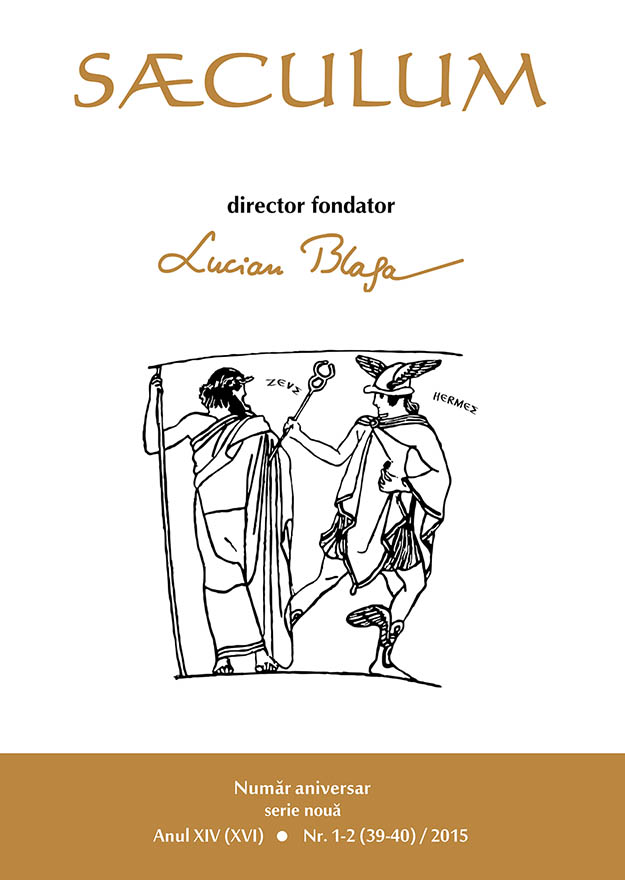
The present study attaches itself to the 3D politics as a way of approaching new ideas and using any support that Godard’s film - Goodbye to Language - may offer, with the avowed intention of reviewing image signifiers which (here) approaches the fact that: the verdict imposed by the political impulse of the image tolerates three dimensions found in representation and representing, mediation and intermediation, geopoetics and geopolitics.
More...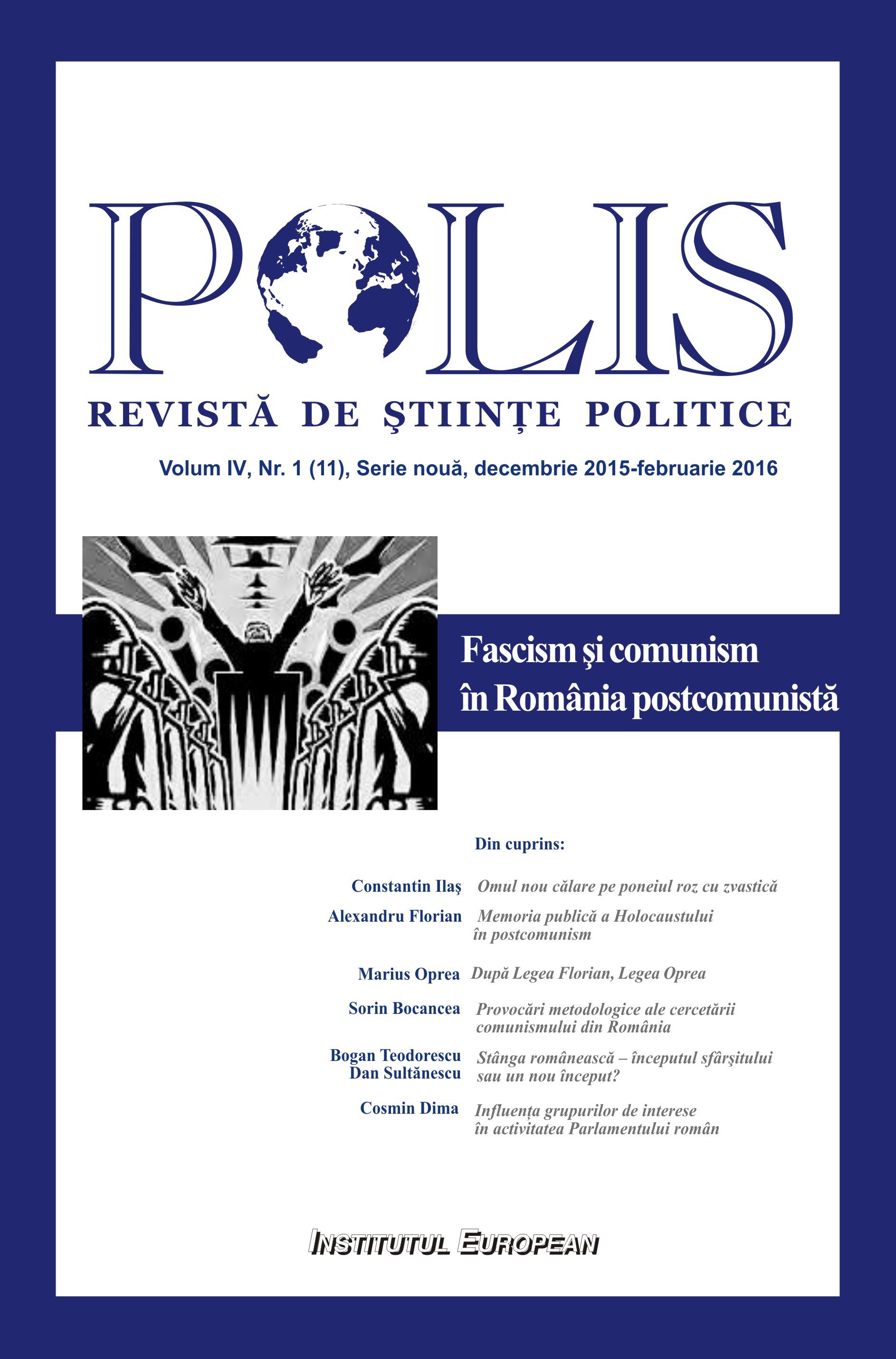
After PSD has lost the presidential elections in 2014, we are in a new context in which we need to discuss the possible decisive erosion of PSD electorate. We will analyze sociological data to see to what extent this possible erosion is based on something real or is just wishful thinking of PSD opponents
More...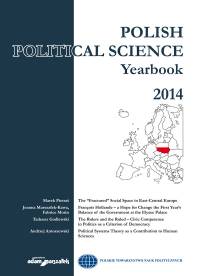
Safety and defence studies have a very short history, as they were created quite recently. Hence the possible assumption that research methods that are used in them are in a sowing stage. In spite of it, there are researchers that decided to undertake a variety of explorative challenges and they try to use different research method, very often choosing them in reference to investigated reality. Therefore, it can be assumed that the methodology of safety and defence studies has not completely developed (yet). Borrowing methods from different sciences is a very difficult venture which causes situations when research results are false or they do not support any of the stated hypotheses. In the objective article, a review of research methods used for now in safety studies has been made. Of course, it can not be suggested that they are the only and the best ones. Actually, scarcely the quantity of conducted researches and investigated issues can let researchers make an observation which method is a leading one. For now, researchers try to look for accurate solutions for them and the investigated matter at the same time. It is very similar to a promotional work (such as essays, researches). In universities, where degree dissertations and Masters’ theses are being created, different research methods are used to apply to them. It happens quite often that the used methodology derives from pedagogical sciences. Some of the universities use research methods borrowed from political sciences. Another ones use methods that are quite sophisticated and very often draw from a variety of scientific disciplines. To recapitulate, one can hope that it is only the matter of time until together with maturating of the new discipline which is safety and defence studies, some methodological patterns will also be created.
More...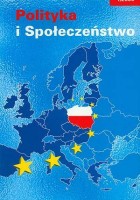
The paper is an analysis of the category of political thought as an element of the research field of political science. The attention focuses on three issues: 1) the concept of political thought and the conceptual network related to it; 2) fundamental sources, methods and techniques adequate to research on political thought; 3) a historiography of political thought and the development of the ways to analyze political ideas. The concept of political thought enjoys a status of an autonomous notion in the language of political science. It is constituted by all kinds of reflection on political reality, irrespective of the degree of their development, internal coherence or systemati-zation as well as of the degree of their theoretical advancement and specification. It origins as a result of political thinking. It cannot be reduced to notions such as ideology, doctrine, conception, programme, ideas, a set of values and political princi-ples or be properly defined by the recurrence to these notions. Neither does it constitute an intermediate link in the categorical chain between ideology and doctrine. Both ideas and programmes, as well as ideologies and doctrines are constitutive elements of poli-tical thought. The present author assumed that political views do not have to relate directly to politics, institutions of power or a political regime as long as they exhibit political features. In the structure of political thought the following strata can be distinguished: ideological, conceptual and pragmatic which are hierarchically interdependent. To develop a political thought is the only way for any political subject to find an answer to many fundamental questions, to define goals which make public activity meaning-ful, to delimit political facts in the reality and to group them into relationships and to distinguish the political subject – in existential terms – from other participants of social life. In the political thought of the XX century one can see the evolution concerning types of ideas dominating the political thought – from the classical political phil-osophy to a reflection related to optimal political decision-making in given circum-stances. The breakthrough occurred around the half of the XX century when political subjects in their idea-making activities ceased to focus exclusively on precise defini-tions of visions of an ideal order based on a single, true and universal principle and engaged themselves in pragmatic controversies concerning the nature of particular solutions and the organization of the process of decision-making, that is concerning political engineering. There follows from the above points that exclusive focusing in research on analyses of political activities and their results without taking into consideration the views of politically oriented communities and decision-making centers representing them, would make it impossible for political science to fulfill its basic functions effectively (from the descriptive to the instrumental one)*. Therefore we attribute such an important role to the proper methodological organization of research on political thought which still suffers from three visible shortcomings affecting the cognitive process in numerous ways: 1. a weakly developed methodological reflection on the notion of political thought and the conceptual network related to it 2. little cognitive interest in the sources, methods and techniques proper to re-search on political thought 3. lacking scientific investigations in the historiography of political thought and the development of ways to analyze political ideas.
More...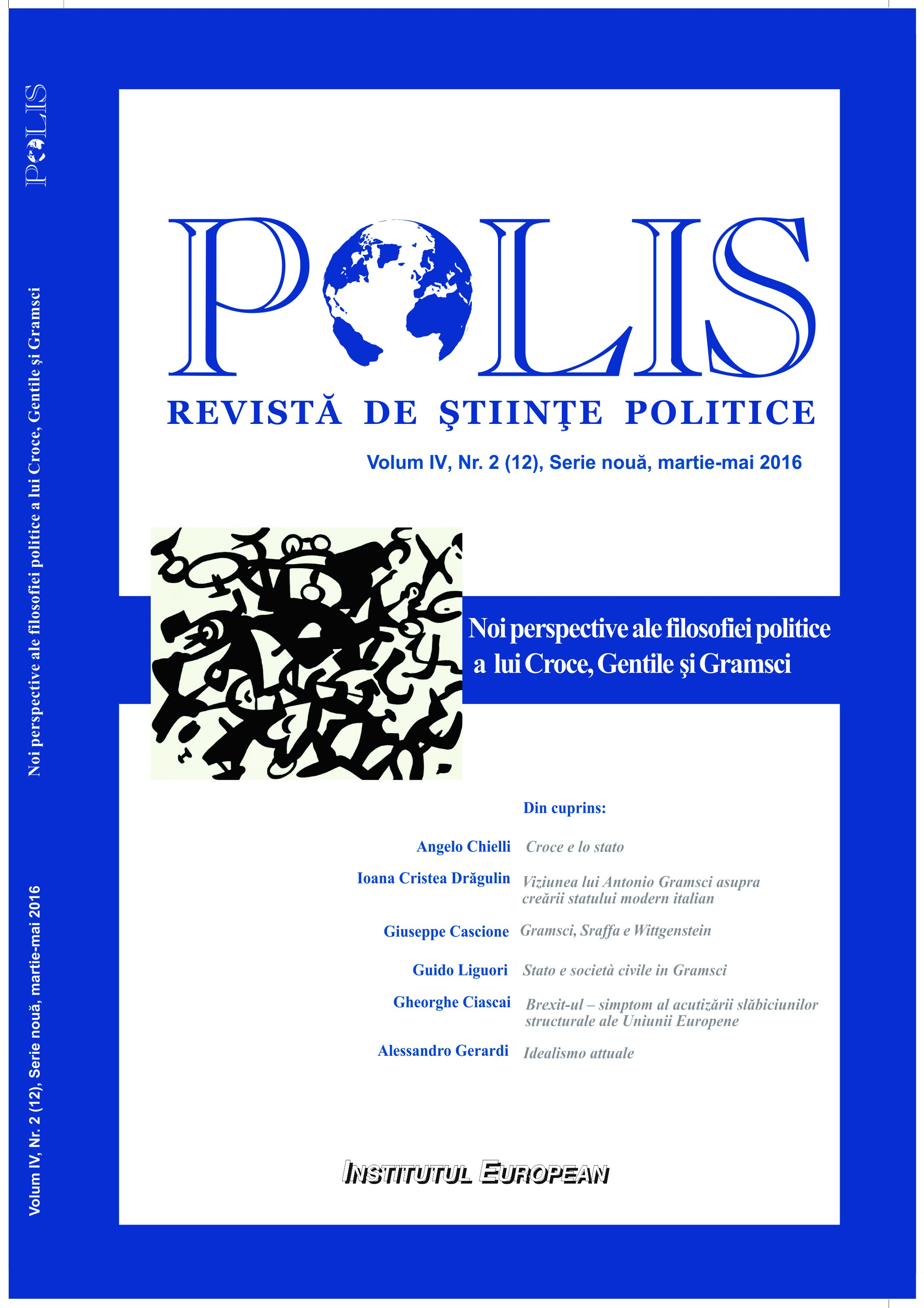
The „Doparie” is a proposal, a method indeed, for participatory democracy in a context of a representative democracy. The awareness, that the policy, which has long been considered unreliable by the civil society, has been the assumption for a search of an organic participation. This has been developed through a scientific survey conducted by the National Research Council that examines the relationship between „emotion and participation”, using also the studies of prof. B. Frey on „Economics and Happiness”. The goal is to create a public opinion structured within the parties that may have an influence, through a deliberative debate on the partisan choices.
More...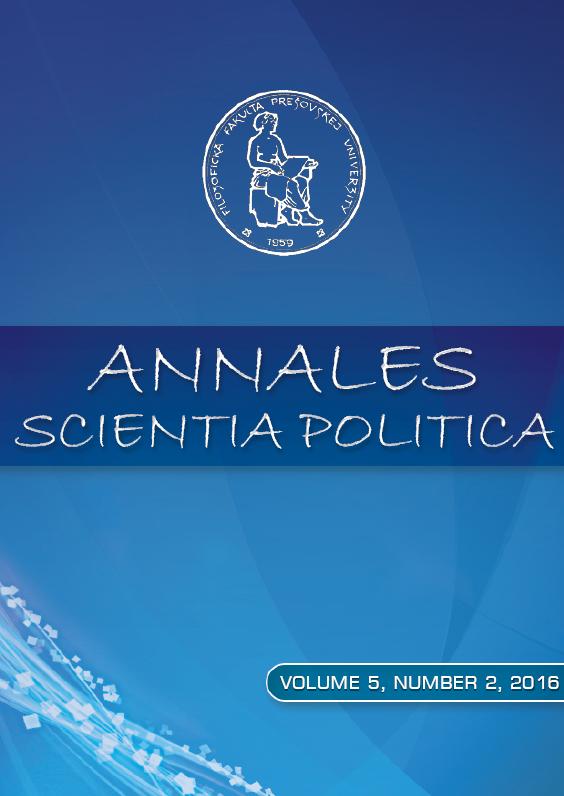
In recent years, political science as a discipline was described very negatively in the views of political elites, media and society. Despite the fact that the their position in modern democratic societies went hand in hand with the word trends of political sciences in common, we are able to observed differences within the interpretation, the methodology, or in the context of scientific papers and publications. The main aim of the article is to analyse selected political journals in Slovakia in the context of their establishment in the international databases, in context of their thematic target and in the diversity in relation to the expertise of authors.
More...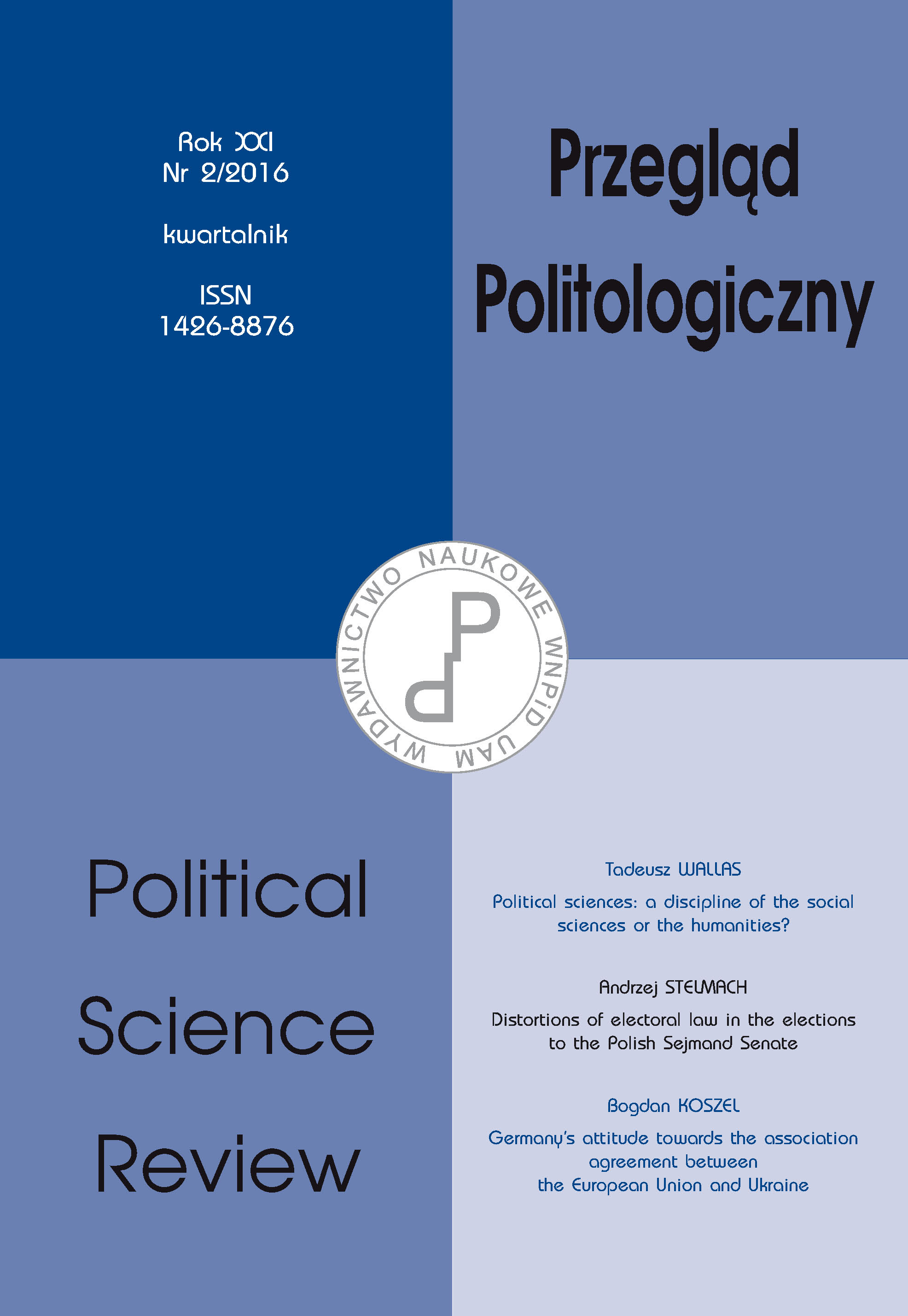
By virtue of an administrative decision, the division of Polish academia into fields and disciplines was verified in 2011. It is owing to this process that political science, among others, was reassigned in Poland. Before September 30, 2011, political science was classified as one of the humanities, but later on it was included in the new field of the social sciences, created as a result of the division of the humanities. This decision started an ongoing discussion, also in the circles of political scientists, on the issue of how advisable this change is, and it has become an important task to confirm the thesis that this decision was substantially justified. It is assumed that political science as a discipline has more in common with other disciplines assigned to the social sciences than the humanities. Additionally, by way of developing a new register of academic fields and disciplines, the administrative divisions in Polish academia were to a large extent aligned with the classification of fields and disciplines adopted by the OECD, UNESCO and EUROSTAT, which will facilitate the internationalization of academic collaboration. The above organizations and institutions, and – consequently – some of their member states, have already divided the humanities, which used to be alternatively named social sciences, into two separate fields: the social sciences and the humanities. In order to justify the above-mentioned thesis, it was necessary to determine how academic specialization, discipline and field of science are perceived today; to indicate the essential divisions in academia; to attempt to de ne the specific nature of the humanities versus social sciences; and to present the relations of political science to the latter category. The assessment of how intensive these relations are, made it possible to confirm that the above-mentioned thesis is justified.
More...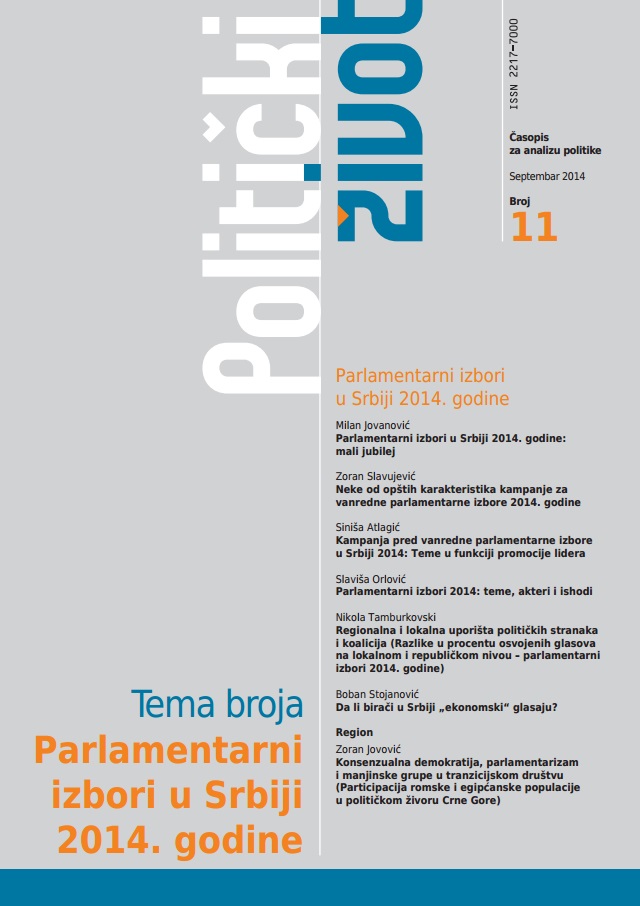
Serbian political and party stage has been basically changed after the 2014 early elections. That is why the author points out to some of the main features of the election campaign we coud take into consideration in an attempt to explain election results: rather short election campaign was the result of numerous campaigns led during the pre-election period; though all the participants argued they were leading positive campaigns, the campaign overall was negative with numerous elements of a „dirty“ campaign; election promises made in a general manner, negative as well as „dirty“ elements brought about the deficit of rational discus sion and made „logic of the heart“ to be prevailing in the campaign and it took the charac teristics of an irrational one; economic and social topics were predominant but once again the campaign cannot be identified as an issue campaign but as a leadership one;leadership campaign unveiled a deep crisis of managing potentials, especially crisis of leadershipand while voters were left to choose among immature and „used“ leaders.
More...
The aim of this paper is to analyze the phenomenon of regional and local strongholds of different parties, i.e. their strongholds in towns and municipalities in Serbia, where some electoral lists for the parliamentary and local elections win a far greater percentage of votes compared to their overall support throughout the country. In the first place, we are offeringseveral answers to the question of what might be called the stronghold of a list. Then we analyze the trend of increase of the number of these local communities in the last few election cycles. Afterwards, we present a number of different tactics used by parties to form a stronghold – empirical examples are given on the basis of the 2014 parliamentary elections and the campaign that preceded them. The final part of the paper tries to answer the question of whether an increase or decrease in support for certain parties in certain strategically important parts of the country in recent years could have a significant impact on their overall electoral success.
More...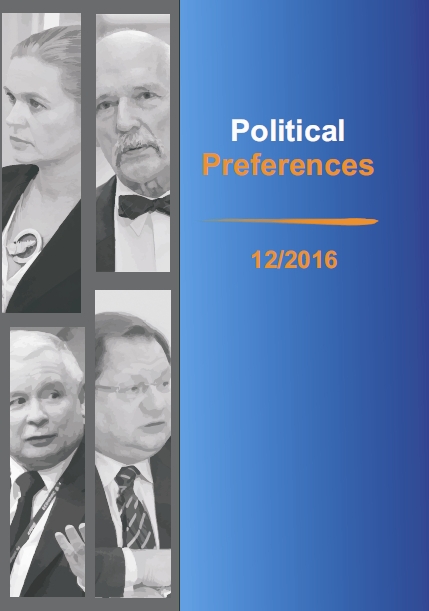
The article contents some results of research on political preferences of candidates for City Council in Szczecin. The survey was done just before the 2014 local elections. In the survey’s results published in this paper, the main object was to determine the relation of candidates for councilors to competition for the mayor of Szczecin. The analysis is focused on the issues of mayor’s potential attributes such as: previous achievements, personal competence, image, party affiliation and program for action in future. Moreover the concentration was also done on preferences of mayor’s candidates: it was very interesting to compare answers on the question who would be better mayor of Szczecin. In the research the modified Analytic Hierarchy Process methods was used. Firstly, the modification, called the method of weighting the selection preferences, showed Piotr Krzystek (mayor of Szczecin since 2006) as a most preferred pretender in 2014 - the majority of party electoral committees recognized him as a second choice candidate. Secondary, each electoral committee had disloyal followers.
More...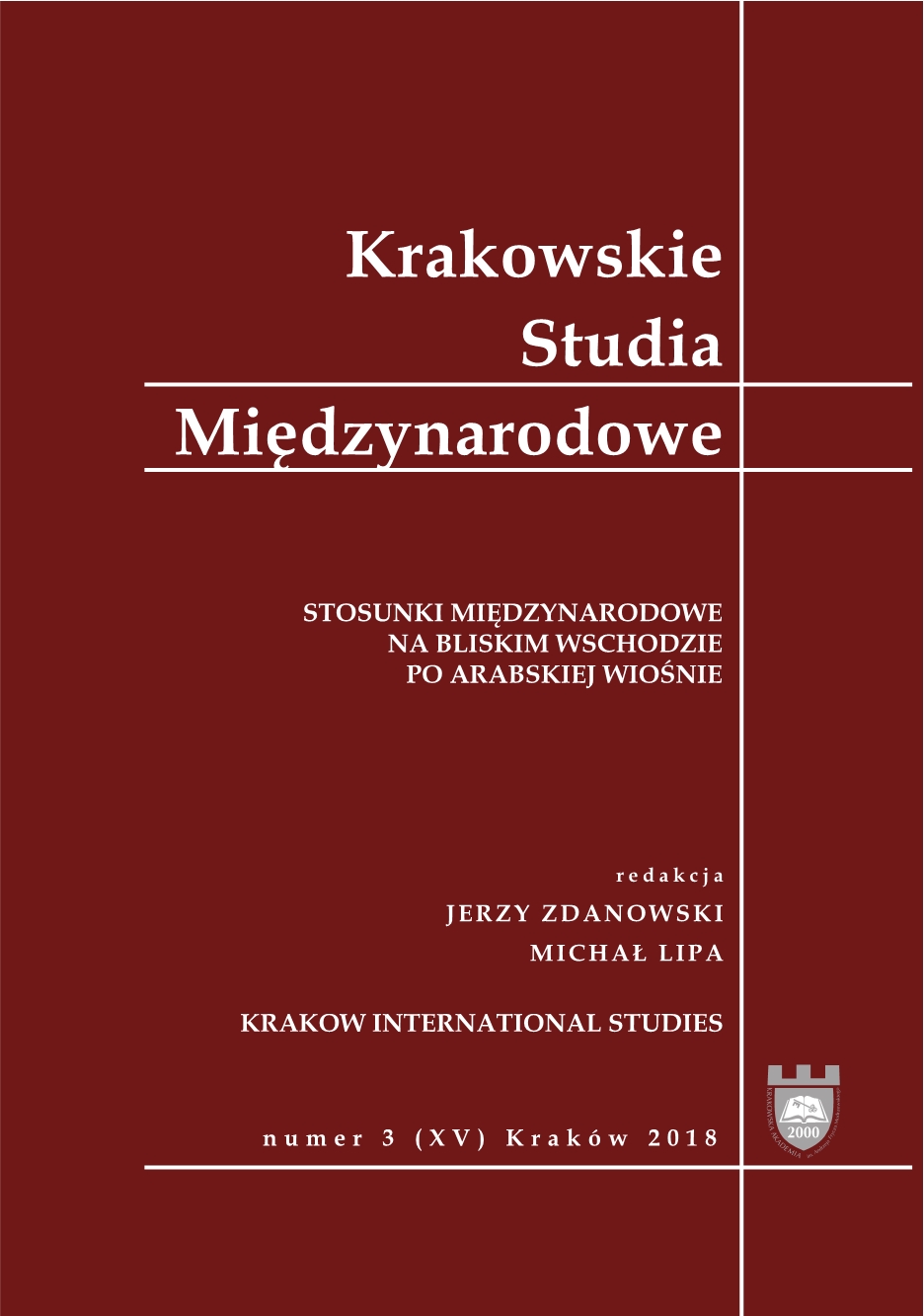
The article discusses the essence of contemporary international relations based on selected definitional approaches, their expanding subject (states, other actors, including transnational ones) and object scope. In particular, the activity of transnational actors leads to the expansion of international relations, which cover more and more new fields. In addition, the study presents the main forms of rivalry, cooperation and struggle manifestation in international relations in the context of selected research theories and approaches.
More...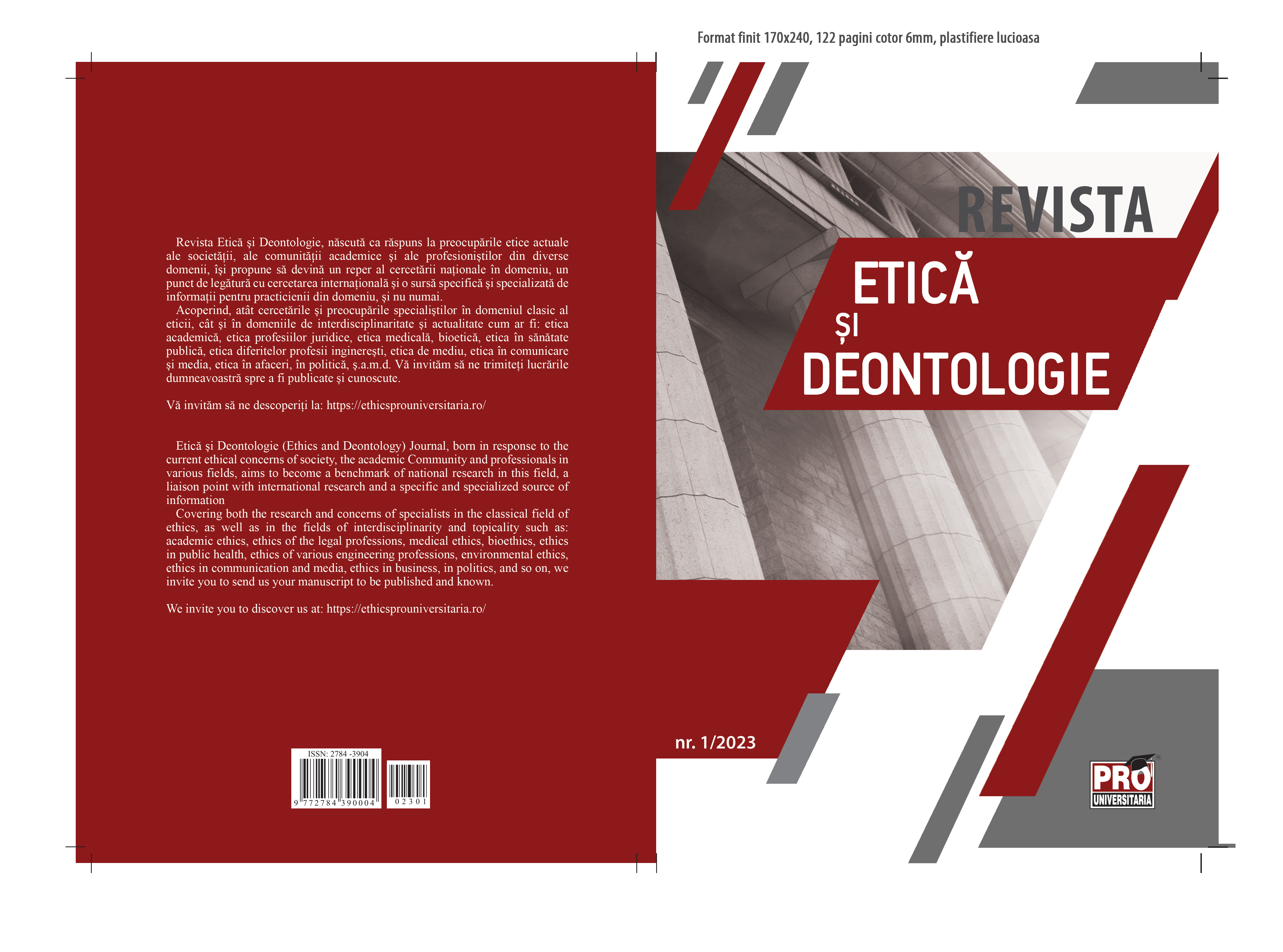
The Principles of separation of power form the backbone of most democratic nations in the world. This system of governance also incorporates checks and balances. Parliament, Executive, and Judiciary have well-defined powers and functions within the constitutional Framework. The judiciary is vested with the power to check the legitimacy of laws. This power enables the judiciary to review the constitutionality of laws on the touchstone of the constitution. This paper deals with case study of two important cases which includes Common Cause and Government of NCT Delhi. In both the cases court declared the actions of parliament invalid. Parliament passed the amendments to overshadow the ruling of the Supreme Court. Such actions in democracy disturb the governance of the country. Also, such practices in the state are considered unethical. Therefore, this paper highlights such practices in reference to the ethical standard set by the Constitution of India.
More...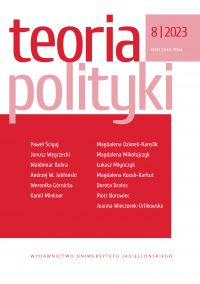
The chapter presents the main axes of the dispute over the identity of political science in Poland in the last half-century, with special emphasis put on the period after 1989. Debates concentrating on three identities criteria are discussed, i.e., the research object of political science, the methods and techniques used in political science inquiry and history and organization of the discipline in Poland. The possibility of indicating the boundaries of the discipline based on a distinct object of research or a unique political science method is considered to be incorrect. Therefore, the answer to the identity crite- ria question lies rather in organizational and historical differences, as well as in special political scientific perspective. In other words, discipline identity is more about theories, language, the way of posing research problems, than methods and object. The outcomes of these disputes for the pluralism of the approaches in political science and interdisci- plinarity are also discussed.
More...
The article identifies and analyses methodological dilemmas in Polish political science in the last fifty years. These dilemmas concern: the object of cognition – its exist- ence and preferred research strategies, the development model of the discipline, methods in political science, methodological identity of political science, the essence of politics and what is political, empirical or theoretical character of political science, the possibility of formulating grand theories in political science, new subdisciplines in political science, political anthropology, individual agency and the ontological status of social groups, value judgments, and axiological neutrality of the researcher. The article concludes that Polish political scientists in the last fifty years have been advocating a complementary position that goes beyond concrete alternatives.
More...
This article aims to survey the principal viewpoints of Polish political theo- rists regarding the position and role of the individual in politics. The discussion involves a thorough analysis of the categories of individual and collective political actors, their distinctive features, and the concept of agency and its new interpretations within the Pol- ish political science. These new interpretations signal evolution in the traditional cate- gorical framework in response to contemporary challenges. The study applies a method of analysis and synthesis incorporating aspects of the dialectical method. The outcome presents a juxtaposition of viewpoints within political science spanning the past several decades, identifying areas of convergence and significant divergences.
More...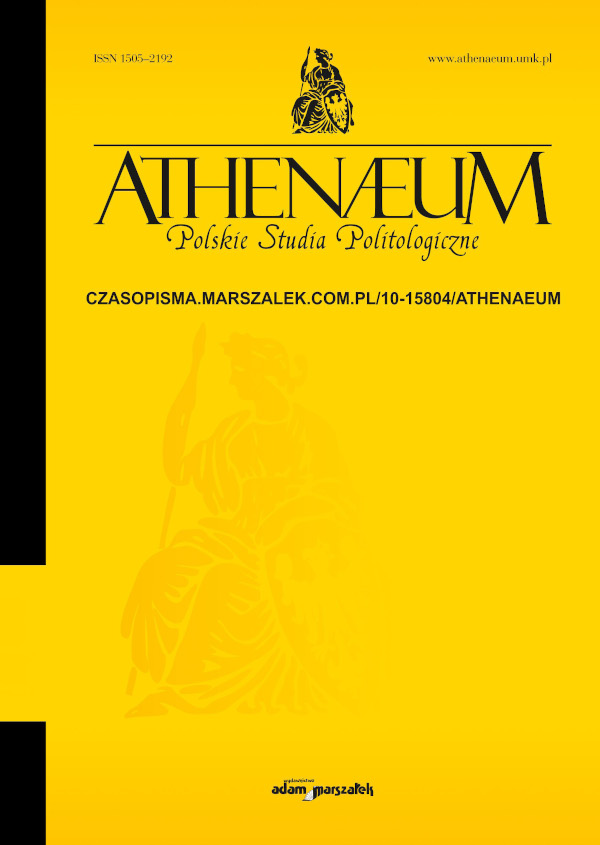
The aim of the article is to examine whether and what are the characteristics of political science research and reflection conducted in Poland. To achieve this, two dimensions of specificity were distinguished, namely disciplinary specificity (features that distinguish political science from other disciplines, especially those within the social sciences) and local specificity (characteristic features of Polish political science compared to the discipline practiced in other countries, particularly Anglo-Saxon). The specificity of Polish political science was then analysed in four fundamental areas that determine the discipline’s identity: 1) the subject of research, 2) research methods, 3) subdisciplinary structure, and 4) structure of theories functioning within the discipline.
More...
On the basis of a post-election questionnaire survey and self-reported voter motivations analysis, this article explores the extent, forms, and determinants of tactical voting in the 2021 Czech parliamentary elections. The prevalence of tactical voting was estimated to be approximately 15%. A significant portion of the electorate harbored a strong aversion towards the ANO political party and its leader, Andrej Babiš. Consequently, regardless of their political preferences, these voters opted for SPOLU, the party with the best chance of defeating him. This strategic approach significantly influenced the election results, including having an impact on the overall winner. According to the binary logistic regression model, younger individuals and those with higher levels of education inclined more towards tactical voting. These findings correspond with studies from different countries, confirm the socio-demographic conditionality of tactical voting, and contribute to the wider discussion of this concept in proportional representation systems.
More...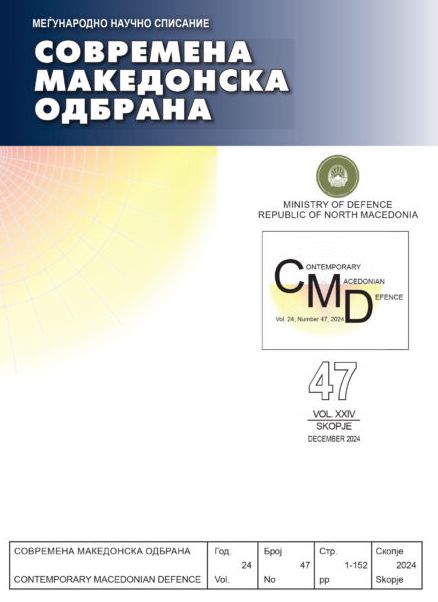
Contemporary geopolitical power is increasingly based on access to and the use of data and technology, but the source of this power is often contested. Since firms and governments are fundamental actors in geopolitical power dynamics. Geopolitics are changing, as they always do. Digitalisation is feeding into that, but the digital future is also going to be affected by it. Today, the world is at war — hot war, cold war, technological war, trade war, social war and internecine political war in a changed geopolitical environment. The lack of boundaries in cyberspace contributes to geopolitical disputes, as data and technology are weaponized across borders, and hacking of critical infrastructure becomes pervasive. AI, digital technologies, and digitalization have become the epicentre for geopolitical conflict. They are the future for the world and whoever becomes leader in that sphere will become the next ruler of the world. controls them.
More...